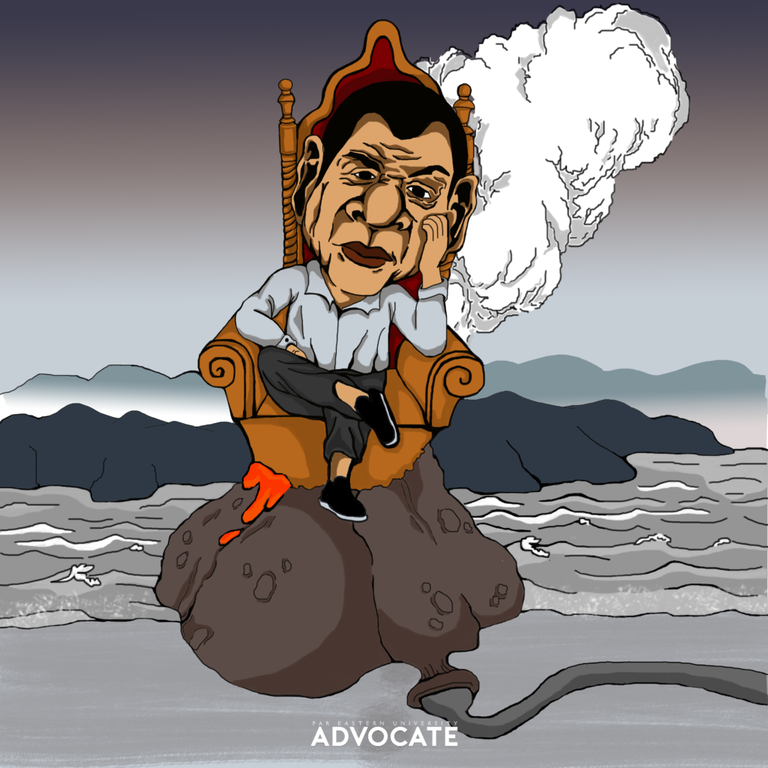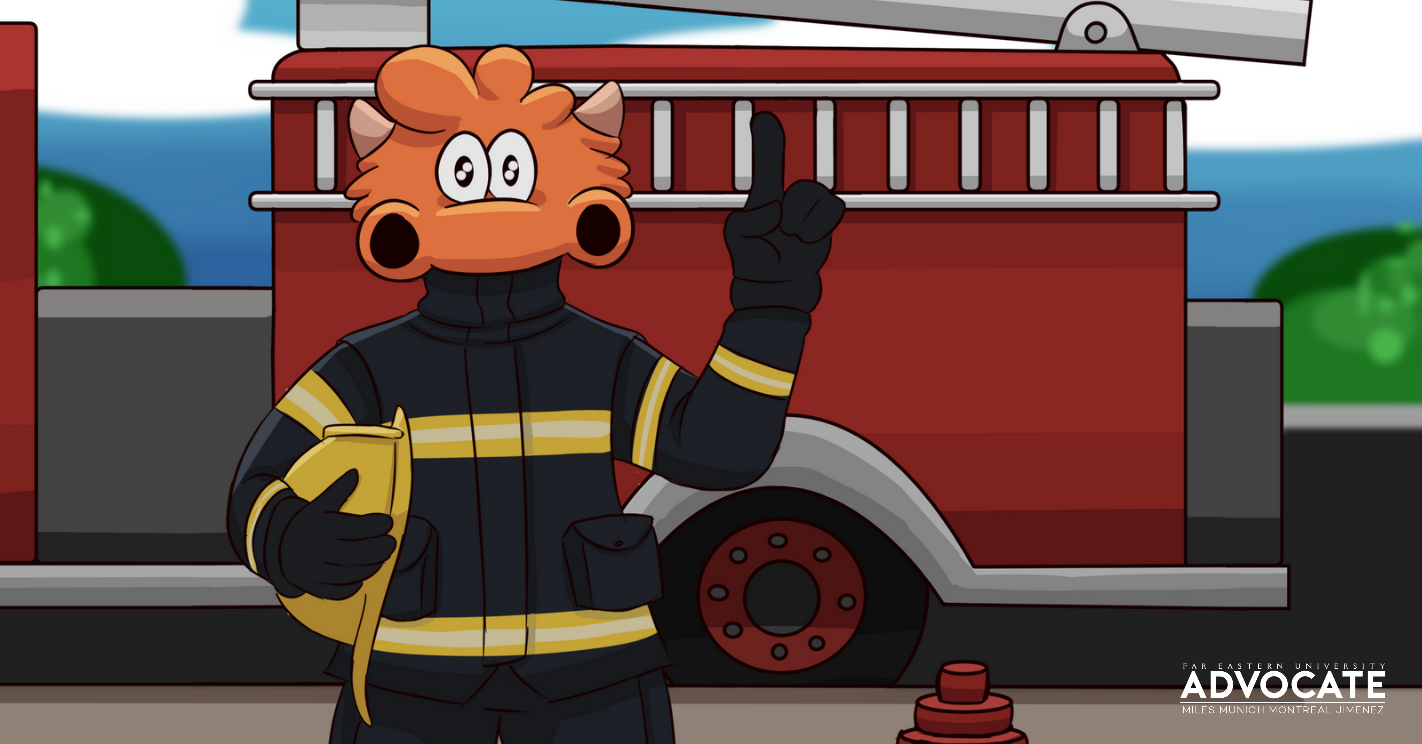
Young Lopez steps up to end UST’s SSL campaign
- July 13, 2024 17:19
FEU Advocate
August 14, 2021 08:08

By Ma. Emilia Nicole D. Bertulfo
Filipino’s undoubted resilience to power through adversity is not tantamount to an arsenal of tools to combat disaster effects nor does it preclude us to demand a leadership fueled by real action and accountability.
Following the phreatomagmatic eruption of the Taal Volcano last July 1, a horrifying recollection of death and destruction brought forth and sparked last year’s trauma and scarring wounds.
High-risk barangays in Batangas and residents living near the Taal Volcano Island were prompted by the Philippine Institute of Volcanology and Seismology (PHIVOLCS) to evacuate for their utmost safety and security after Taal Volcano’s unrest reached Alert Level 3 generating short-lived dark plumes one kilometer high.
Amid the gravity of the agency’s alert warning, President Rodrigo Duterte downplayed the gravity of the agency’s warning and cracked an uncalled deadpan jest of putting a cap on the deadly crater.
With the situation taken lightly without a high regard for its repercussions, not only does this comedic commentary jeopardize the life and well-being of thousands of Filipinos but more so implicates a leadership tainted with poor accountability and no concretized plan of action at hand.
Recent news about Taal’s strong volcanic tremors were recorded last August 12 with magnitude 2.6 and 4.1, respectively which were felt at Intensity II. Given Taal’s activeness and potential threats, can we expect an engaged disaster preparedness and prevention or at the very least not receive an unwarranted, futile comic relief from the President himself?
All we are yearning for are reassurance of relief efforts, aid distribution, and reliable government response, but concerned communities were left in the dark to fend for themselves scrambling for decisive leadership, but were found nowhere in sight.
Amidst trials and tribulations brought by Taal’s volatility, Filipinos have always lauded and prided themselves with their unwavering resilience withstanding every aftermath of natural calamity there ever was. A term that has been overused after being battered by harrowing natural forces to poorly excuse and justify accountability and responsibility from supposedly elected leaders who are tasked to prevent imminent danger in the first place.
While it is by no means a negative characteristic to possess given the challenges that lie ahead – to what extent will our last ounce of resilience ever be enough?
Headline after headline, year after year, and story after story – “Filipino resiliency” has been an ongoing vicious cycle to the point that we have been accustomed and desensitized to the horrors brought by these calamities given our unique geographical situation and current political landscape. But sadly in the middle of this chaos, we have forgotten to ask ourselves the real question as to why Filipinos needed to be resilient in the first place.
Rather than focusing on rehabilitating and rebuilding communities afterward, we need to shift from the reactionary type of approach during disasters and instead foster a precautionary culture to prepare and avert potential damage. This is the reflection of a true, genuine resiliency – not the “Filipino resiliency” that we have been fooled to believe and have been credited with for so long.
Until the time comes when safety and protection come first, and an empathetic, transparent, and accountable leader stands among us – to demand and necessitate a leadership anchored on a government of the people, by the people, for the people – our call to action will continue to live on.
(Illustration by Shalea Mae Minon/FEU Advocate)









